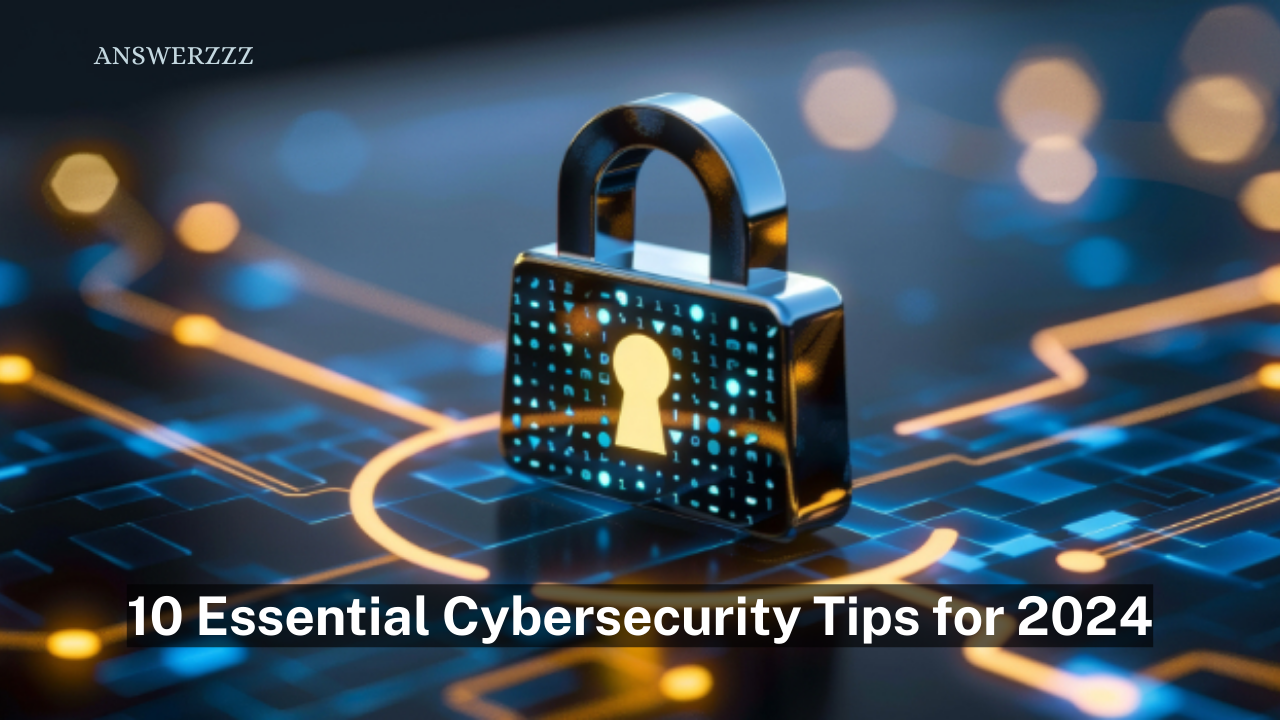In an increasingly digital world, data security remains a top priority. With cyber threats growing more sophisticated and common, 2024 has brought new cybersecurity challenges and precautions that both individuals and businesses must consider to stay protected. Here are ten essential cybersecurity tips for 2024 to help safeguard your data.
1. Strengthen Your Password Strategy
One of the most straightforward yet effective ways to improve your cybersecurity is by maintaining strong and unique passwords. However, in 2024, traditional passwords alone are often insufficient. Passwords should contain at least 12 characters, including a combination of upper and lowercase letters, numbers, and symbols. Avoid common phrases, personal information, or simple patterns. Consider using passphrases—short sentences or phrases with random elements—to increase security. To further enhance password safety, utilize a reputable password manager. These tools generate and store complex passwords, so you only have to remember one strong master password, minimizing the risk of data breaches due to weak passwords.
2. Enable Two-Factor Authentication (2FA) Everywhere
Two-factor authentication (2FA) adds an extra layer of security beyond just a password. In 2024, 2FA has become a necessity across all accounts that offer it. This method typically requires you to enter a code sent to your mobile device or email after you’ve entered your password. Some services even provide the option of biometric verification (like facial recognition or fingerprint scanning), further boosting security. By enabling 2FA, you make it much harder for unauthorized users to access your accounts, as they’d need both your password and physical access to your second authentication device.
3. Regularly Update Your Software
Outdated software often lacks the latest security patches, leaving it vulnerable to cyber-attacks. Regular software updates are crucial for your operating systems, applications, and even devices like routers and IoT gadgets. Cyber attackers often exploit software vulnerabilities, so keeping everything updated is a vital defence measure. Most operating systems and applications offer an auto-update feature that simplifies this process. In 2024, an additional focus has been placed on updating firmware, as connected devices are now integral to both personal and professional environments, necessitating that all systems remain up-to-date.
4. Be Cautious of Phishing Scams
Phishing scams continue to evolve, making them more deceptive and dangerous. Scammers often pose as legitimate entities like banks or trusted websites to trick you into sharing personal information or clicking on malicious links. In 2024, many phishing attempts have become more sophisticated, often appearing indistinguishable from authentic communications. Always verify the sender’s email address and look for any inconsistencies in the message. Avoid clicking on any links in unsolicited emails, especially those requesting sensitive information. Additionally, you can enable anti-phishing features in your email client and browser for an added layer of protection against these threats.
5. Implement Device Encryption

Device encryption is a critical step for protecting sensitive data. By encrypting your devices, you ensure that the data stored on them is unreadable without the correct password or encryption key. Many modern devices, including smartphones, laptops, and USB drives, offer built-in encryption options. If your device is lost or stolen, encryption will make it extremely difficult for unauthorized users to access your data. In 2024, device encryption has become even more important, as remote work and data mobility continue to rise. Organizations are also increasingly requiring employees to encrypt their devices to comply with data protection regulations.
6. Use Virtual Private Networks (VPNs)
A Virtual Private Network (VPN) adds a layer of privacy and security to your internet connection by masking your IP address and encrypting your online activities. VPNs are particularly useful when connecting to public Wi-Fi networks, which are often less secure and can be easily exploited by cybercriminals. In 2024, VPN usage has surged, with more people understanding its importance not just for privacy but also for protecting sensitive information. When selecting a VPN, choose one with strong encryption standards and a no-logs policy, meaning the VPN provider does not track or store your browsing activity.
7. Back-Up Your Data Regularly
Backing up your data is essential to protect yourself from data loss due to cyber-attacks, hardware failures, or accidental deletions. In the event of a ransomware attack, for example, having a recent backup of your data can enable you to restore your information without paying a ransom. For maximum protection in 2024, utilize both local and cloud backups, keeping in mind that these backups should also be encrypted. Set a schedule for regular backups, and verify that the data is stored securely. Many backup solutions offer automatic backup options, simplifying the process and ensuring your data remains protected.
8. Secure Your Wi-Fi Network
Your home or office Wi-Fi network can be an entry point for cybercriminals if not properly secured. Start by changing the default username and password for your router, as these are widely known by hackers and can be exploited. Use WPA3 encryption, the latest Wi-Fi security protocol, which offers stronger protection than previous versions. For added security, hide your network’s SSID (Service Set Identifier) so it doesn’t show up in available Wi-Fi lists. In 2024, as more people work remotely, securing Wi-Fi networks is vital to ensuring both personal and professional data remains safe.
9. Be Wary of Third-Party Apps and Plugins
Third-party apps and browser plugins can add functionality to your devices and software, but they also introduce additional cybersecurity risks. Cybercriminals sometimes use these applications to install malware or collect sensitive information. Before downloading any app or plugin, research the developer’s reputation, and check for reviews and ratings from other users. In 2024, the focus on app security has increased, with reputable app stores improving their vetting processes. However, it’s still essential to only download apps from trusted sources and regularly review the permissions granted to each app, removing any that seem unnecessary or intrusive.
10. Educate Yourself and Stay Informed

The cybersecurity landscape is constantly evolving, making it essential to stay updated on the latest threats and best practices. Cybercriminals frequently adapt their methods to exploit new vulnerabilities, so ongoing education is crucial for staying one step ahead. In 2024, there are numerous online resources, webinars, and cybersecurity courses that provide valuable insights and training. Regularly educate yourself and your employees on cybersecurity fundamentals, safe online practices, and recognizing potential threats. Being informed can significantly reduce the risk of falling victim to cyber-attacks.
As we move deeper into the digital era, cybersecurity has become a fundamental aspect of both personal and professional life. Following these ten cybersecurity tips in 2024 can help you protect your data, minimize vulnerabilities, and navigate the online world with greater confidence. Staying vigilant, informed, and proactive will serve as your best defence against the ever-evolving landscape of cyber threats.




